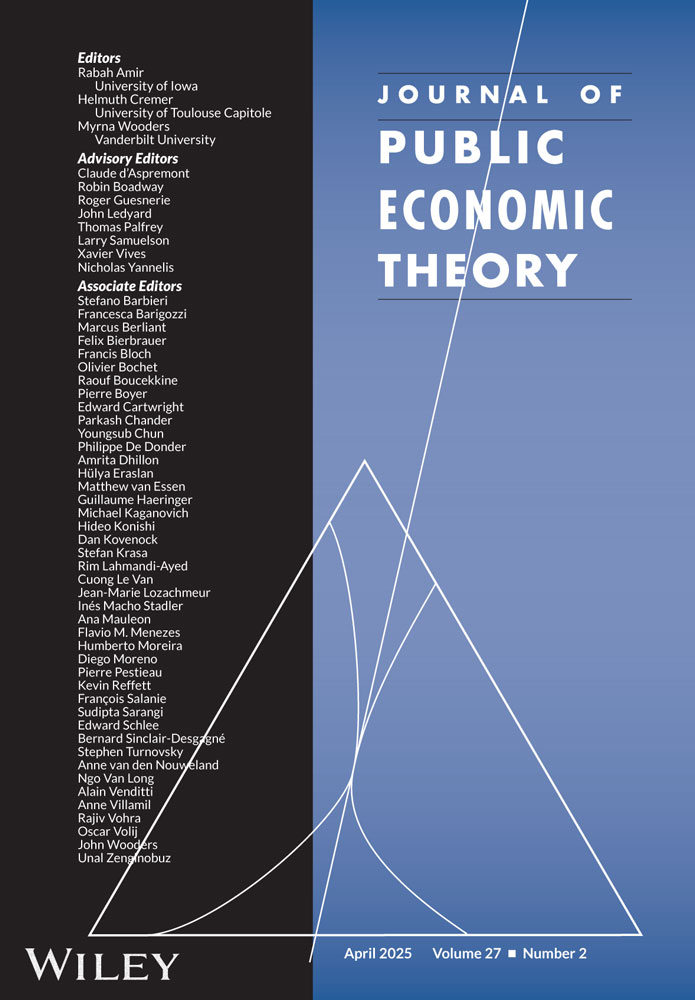Intermediate Condorcet Winners and Losers
ABSTRACT
The conditions of strong Condorcet winner consistency and strong Condorcet loser consistency are, in essence, universally accepted as attractive criteria to evaluate the performance of social choice functions. However, there are many situations in which these conditions are silent because such winners and losers may not exist. Hence, weakening these desiderata to extend the domain of profiles where they apply is an appealing task. Yet, the often-proposed and accepted weak counterparts of these properties suffer from the shortcoming that it is possible for all weak Condorcet winners to be weak Condorcet losers at the same time, thus leading to contradictory recommendations regarding their use as normative criteria. After arguing that this anomaly is pervasive, even in the presence of substantial and important domain restrictions, we propose to use intermediate notions of Condorcet-type winners and losers that are between these two extremes: their associated consistency requirements share the intuitive appeal of strong Condorcet winner consistency and strong Condorcet loser consistency and avoid the contradictory recommendations that may derive from the double identification of candidates as being weak Condorcet winners and losers at the same time. We examine the extent to which our intermediate consistency conditions are compatible with various additional attractive normative criteria. Finally, we introduce a class of social choice functions that are consistent with the recommendations of our new proposals and can be extended to the universal domain through the lexicographical use of complementary choice criteria, in the spirit of previous approaches by noted authors like Pierre Daunou and Duncan Black.
Open Research
Data Availability Statement
The authors have nothing to report.




